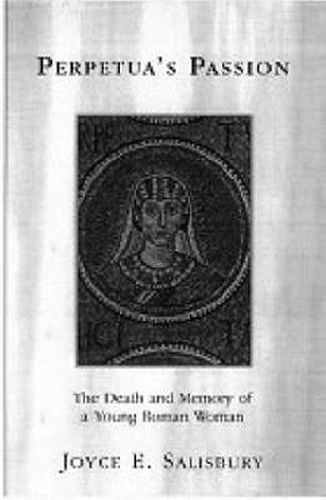Readings Newsletter
Become a Readings Member to make your shopping experience even easier.
Sign in or sign up for free!
You’re not far away from qualifying for FREE standard shipping within Australia
You’ve qualified for FREE standard shipping within Australia
The cart is loading…






In 203 A.D. a group of Christians in Carthage, North Africa, were sentenced to the beasts in the arena. One of these, a 22-year-old young mother, wrote a diary while she was imprisoned awaiting execution; later, this diary was completed by an observer who described her death in the arena. This personal narrative is the focus of this study of the conflict that resulted in the martyrdom of Perpetua. It explores the 3rd-century martyrdom of a young woman and places it in the intellectual and social context of her age. Conflicting ideas of religion, family and gender are examined as the author follows Perpetua from her youth in a wealthy Roman household to her imprisonment and death in the arena. He considers the ideas that shaped Perpetua’s experience and the memories that appeared in her dreams and text, including metaphysical reflections, Carthaginian ideas of sacrificial suicide, and early Christian praise of prophecy and passion. The book also encompasses other dilemmas such as family, gender roles and motherhood, using the experience of this young martyr to explore these conflicting ideals.
$9.00 standard shipping within Australia
FREE standard shipping within Australia for orders over $100.00
Express & International shipping calculated at checkout
In 203 A.D. a group of Christians in Carthage, North Africa, were sentenced to the beasts in the arena. One of these, a 22-year-old young mother, wrote a diary while she was imprisoned awaiting execution; later, this diary was completed by an observer who described her death in the arena. This personal narrative is the focus of this study of the conflict that resulted in the martyrdom of Perpetua. It explores the 3rd-century martyrdom of a young woman and places it in the intellectual and social context of her age. Conflicting ideas of religion, family and gender are examined as the author follows Perpetua from her youth in a wealthy Roman household to her imprisonment and death in the arena. He considers the ideas that shaped Perpetua’s experience and the memories that appeared in her dreams and text, including metaphysical reflections, Carthaginian ideas of sacrificial suicide, and early Christian praise of prophecy and passion. The book also encompasses other dilemmas such as family, gender roles and motherhood, using the experience of this young martyr to explore these conflicting ideals.